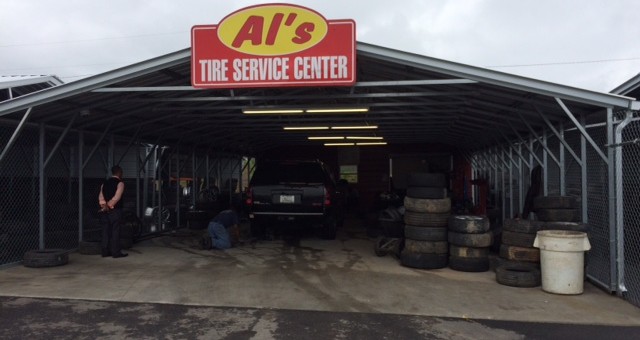Accelerate Your Drive with Morris Tire: Your Trusted Tire Store Near Me
Accelerate Your Drive with Morris Tire: Your Trusted Tire Store Near Me
Blog Article
The Environmental Advantages of Appropriate Tire Upkeep
Keeping appropriate tire treatment is usually ignored, yet its influence on the environment is profound. From lowering fuel usage to lowering exhausts output, the benefits are far-ranging. Correct tire upkeep not only prolongs the lifespan of tires yet likewise lowers landfill waste and contributes to improved air quality. The interconnectedness of these advantages highlights the important duty that easy upkeep methods can play in advertising environmental sustainability.
Decreased Gas Intake
Improving tire maintenance techniques can lead to a substantial decrease in gas consumption for lorries. According to the U.S. Division of Power, underinflated tires can decrease gas mileage by 0.2% for every 1 psi decrease in stress in all 4 tires.
Along with tire stress, routine tire rotations and alignments also play a vital function in gas performance. Unevenly worn tires can increase gas usage as the engine works harder to maintain speed and grip. By keeping appropriate placement and rotating tires at recommended periods, motorists can ensure even put on and extend the life of their tires, ultimately saving gas and minimizing their carbon footprint.
Extended Tire Life-span
Prolonging the life-span of tires is a crucial aspect of efficient automobile upkeep techniques that can generate expense financial savings and ecological advantages in the future. By properly keeping tires, drivers can significantly lengthen their functionality, minimizing the frequency at which new tires need to be produced and old ones gotten rid of. This not only saves important resources yet likewise minimizes the energy and discharges associated with tire manufacturing and disposal processes.
Regularly examining tire stress, turning tires, and ensuring correct placement are crucial steps in expanding tire life expectancy. Adequate walk deepness is important for optimum traction and safety and security, but it also contributes in how lengthy tires can be made use of before needing substitute. In addition, preventing hostile driving behaviors that speed up tire wear, such as harsh stopping and doglegs, can even more improve tire resilience.
Eventually, raising the longevity of tires with aggressive maintenance not only benefits the setting by lowering waste and conserving sources but also causes set you back savings for automobile proprietors by delaying the requirement for brand-new tire acquisitions.
Reduced Emissions Output
Effective tire maintenance practices add to a reduction in discharges output, lining up with environmental sustainability objectives in the auto industry. Properly inflated tires, consistently rotated and straightened, can boost gas performance, therefore reducing the general co2 discharges from automobiles. When tires are underinflated, the engine needs to Visit Your URL function more challenging to drive the lorry, resulting in boosted fuel intake and greater exhausts. By preserving ideal tire pressure levels, drivers can assist reduce these unfavorable ecological influences.
In addition, properly maintained tires likewise improve grip and minimize rolling resistance, even more improving fuel performance. This, consequently, reduces the quantity of exhaust gases released into the ambience. Additionally, making sure tires are effectively blown up and aligned can extend the life expectancy of the tires, lowering the regularity of tire replacements and the check that associated environmental costs of tire manufacturing and disposal.

Decreased Land Fill Waste
Offered the favorable impact of appropriate tire maintenance on decreasing discharges output, an additional substantial ecological benefit is the capacity for decreased landfill waste. By ensuring that tires are properly blown up, lined up, well balanced, and revolved on a regular basis, their life-span can be substantially prolonged.

Improved Air Quality
Enhancing air high quality via correct tire maintenance techniques is an essential element of lasting environmental stewardship. When tires are underinflated, they produce extra rolling resistance, resulting in increased gas consumption and higher exhausts of harmful contaminants such as carbon monoxide and nitrogen oxides. Properly filled with air tires not only enhance fuel effectiveness but likewise lower the amount of toxins released right into the air.
Moreover, well-kept tires with appropriate step deepness and alignment add to much safer motoring problems, reducing the probability of crashes that can cause the launch of additional contaminants into the atmosphere. By extending the lifespan of tires with regular upkeep and turning, less tires are discarded prematurely, lowering the environmental impact of tire disposal and manufacturing processes.
Verdict
In final thought, correct tire upkeep supplies countless ecological benefits. By minimizing fuel intake, expanding tire life-span, decreasing exhausts outcome, reducing land fill waste, and improving air quality, individuals can add to a much healthier planet. These efforts not only benefit the environment but also help to save sources and lower general ecological influence. It is important for people to focus on tire maintenance as a simple yet effective way to secure the atmosphere for future generations.
Correct tire maintenance click here now not just prolongs the life-span of tires however also lowers garbage dump waste and adds to boosted air high quality - morris tire. By maintaining proper placement and revolving tires at recommended periods, vehicle drivers can make certain even extend the life and put on of their tires, eventually conserving gas and lowering their carbon impact
By properly preserving tires, drivers can substantially prolong their usability, lowering the regularity at which new tires require to be manufactured and old ones disposed of.Routinely examining tire stress, revolving tires, and guaranteeing appropriate placement are vital actions in extending tire life-span. Additionally, making sure tires are effectively pumped up and straightened can prolong the lifespan of the tires, minimizing the regularity of tire substitutes and the associated environmental costs of tire manufacturing and disposal.
Report this page